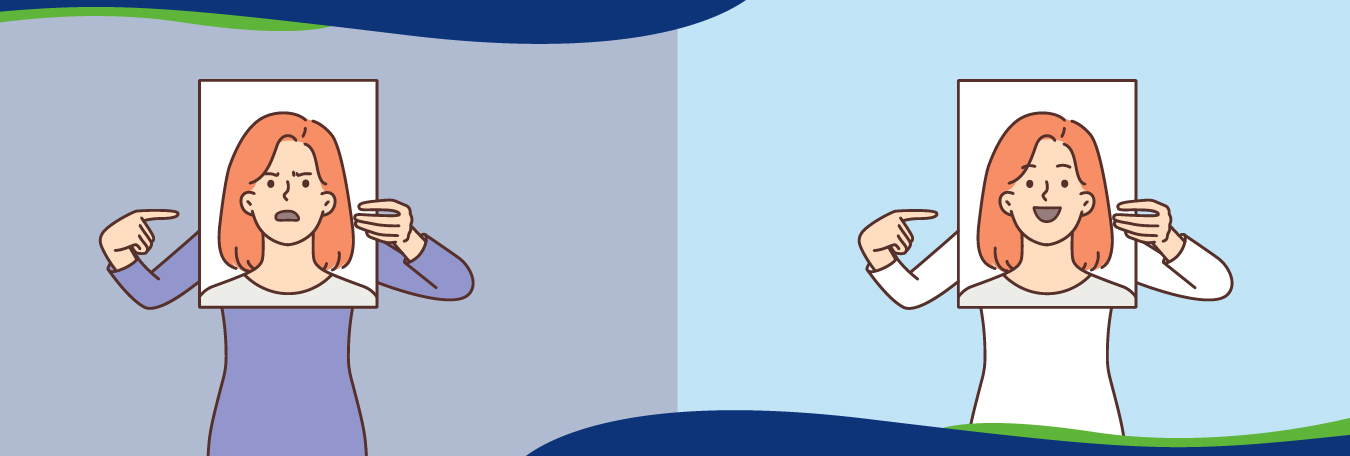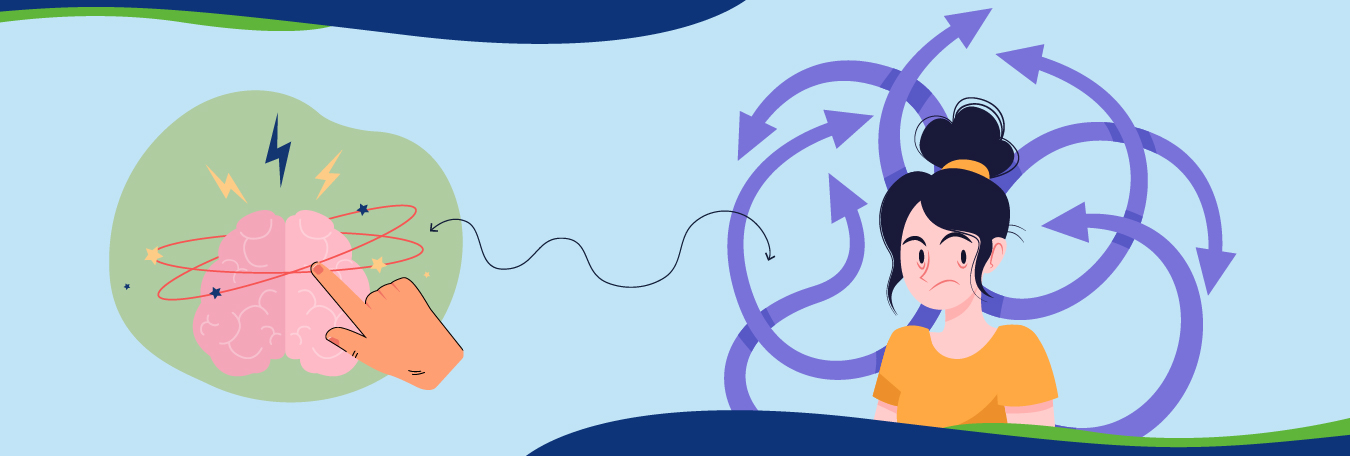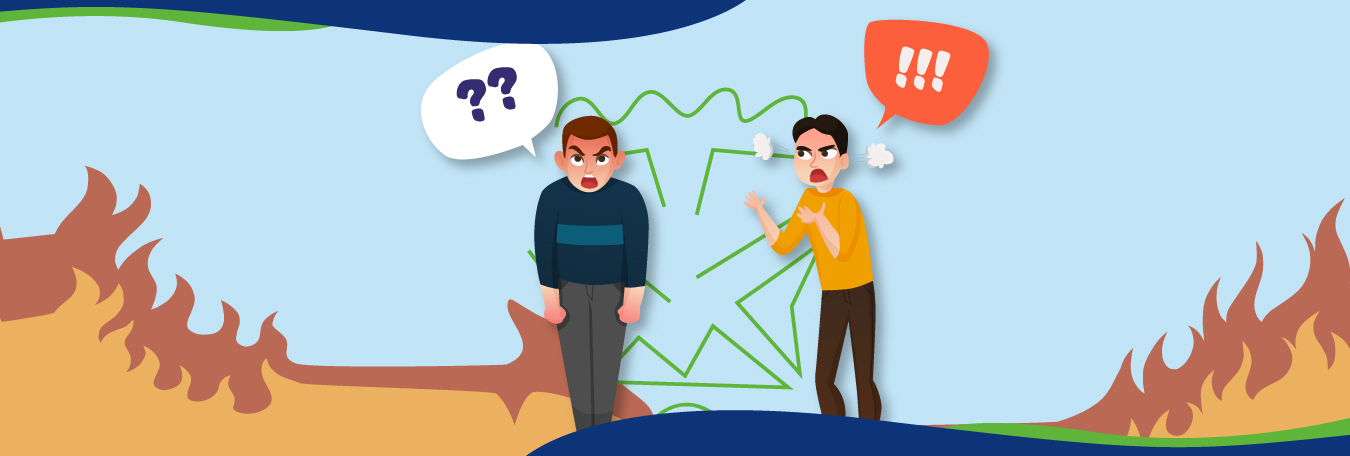Have you seen the recent movie Inside Out 2 that revolves around different kinds of emotions, where each important mood that we have felt at some point in our lives, is a character? There were a lot of emotions in there that are back in the sequel: Joy, fear, disgust, anger, and sadness. Some new additions were also there: Anxiety, embarrassment, envy, and ennui (boredom). All of these emotions can cause different types of moods. You probably have started wondering how many emotions and how variable types of moods are there due to them that are steering my feelings and thoughts. Well, we need to understand the spectrum that represents different kinds of moods, and how it can lead to different types of affect and mood swings. Let’s start:
What are Moods
Moods are essentially expressions that come as a response to different types of stimuli that exist due to situations in our lives. There are different types of moods (more on that in the next section). These different kinds of moods can either be positive or negative. These can be caused by different situations which can either be positive or negative. Even positive situations can cause negative emotions or moods. They are often manifesting as a physical response to a certain situation, for example, letting out a scream when you get injured. This is essentially one of the many different types of moods.
What Are Different Types of Moods?
If you ask how these moods are the same things as emotions or how an emotion is different from a mood, so yes, there is one radical difference. Types of moods that exist, indeed exist due to the different clusters of emotions that accumulate over time and their formation cannot exactly be pinpointed but certainly explain their existence. Positive moods like overjoy or enjoyment can be caused by positive emotions such as joy, excitement, enthusiasm, satisfaction, happiness, or a combination of them. Different types of moods can also be negative. This can be something like depression, which causes overaccumulation of different emotions such as sadness, anxiety, anger, guilt, or fear. This is how an emotion is different from a mood!
Emotions vs Moods?
This does not stop at what are the different types of mood swings one can have. People can get confused and wonder about how these emotions or moods can steer toward how you will feel or what you will feel. The thing is that when the main difference between different kinds of moods or different types of emotions is in the big picture, it can also control how your body is going to react to each of these expressions. In fact, this is how an emotion is different from a mood! When it comes to the bigger picture, moods will always win as they are more impactful to your everyday life. Different types of moods will take place for a longer period of time. A great example of this depression. In contrast an emotion is much more short-lived when it happens due to a known cause. Moods will only affect body language, sudden facial expressions, and decision-making.

What Is Something Called An Affect?
There are also different types of affect and mood is also related to these affects. Affect is a measurement of mood especially when they are immediately expressed emotions. An affect of an emotion and by proxy, the mood can be broad, restricted, blunted, flat, labile, and inappropriate. One can say these affects are essentially describing the spectrum that represents the descent of positive types of mood or a cluster of emotions to negative types of mood or a cluster of emotions. These effects can be used to diagnose mental disorders that relate to different types of moods such as an aggressive disorder called intermittent explosive disorder which is characterized by sudden bouts of anger and/or impulsivity and irritability.
As mentioned there are six main types of affects, which range from typical to atypical behaviors in humans:
Broad affect – Displays typical affective regulation
Restricted affect – Evidences a narrow range of emotions
Blunted affect – Demonstrates a limited intensity of emotions
Flat affect – Shows no emotions
Inappropriate affect – Demonstrates emotions that do not fit the context
Labile affect – Displays unpredictable and unexpected swings in emotions
Learn More: Bipolar Disorder And OCD: Insight into the facts
Different Kinds Of Moods Can Also Be Influenced By:
Emotions aren’t the only thing that influences different types of moods. In addition to emotions being the number one cause, there are a couple of things that include what different types of mood swings you will be going through:
Chemical Communication and Biology:
The way your chemical messengers such as dopamine or norepinephrine will be working in your brain will also affect how you behave through the different types of moods you will be exhibiting. Additionally, all of these things that happen to be part of human biology: Hormonal fluctuations, sleep deprivation, and even genetics, will all play a role in different types of mood swings you will be feeling. Examples of the neurotransmitters that may or may not affect your mood swings are Adrenaline (Stimulates the body), Dopamine (Boosts self-confidence and motivation), Cortisol (Triggers stress responses), Norepinephrine (Linked with the fight-or-flight response) Oxytocin (Regulates feelings of relaxation, trust, and pleasure), Serotonin: Regulates mood and contributes to feelings of well-being and Endorphins (These generate energy and feelings of optimism).
Stressful Situations:
Life events or situations that cause stress and anxiety are bound to cause different types of mood disorders and it will be out of your control. These are also capable of causing different types of anger disorders in adults and mood disorders in kids.
Behaviors:
Behaviors kind of have a symbiotic relationship with different types of moods. Negative behavior will lead to negative types of mood swings and positive ones will cause positive types of mood swings. A great example would be exercising, which is known to improve and regulate positive emotions and bring them up front. This way you can also steer away from the different types of moods that are negative.
Thought Processes:
Our thought processes also have an extreme impact on the different types of moods that we experience. This relationship is also a double-edged sword, which means it will also be a vice-versa type of situation. For example, you are going to get negative types of mood swings if you have negative thought processes.
The Duration and Stability of Different Types of Moods
The period of different types of moods elapsing times and the perceived stability or instability are two other parameters that are associated with different kinds of moods. Although some of the terms might suggest otherwise, the terms will still be longer than what is described for the time it takes emotions to be expressed. These can be negative or positive. The variable periods of different types of moods are seen below:
- Short-term: Cluster of emotions that take place for a very short period of time
- Medium-term: A cluster of emotions that will last for a few weeks or even a month and is not likely to change
- Long-term: Cluster of emotions that last for months or even years and will probably not change in
Mental Illnesses Stemming From Extreme Moods
Different mood types are also capable of extreme moods that lead to severe mood disorders in kids, adolescents, and adults. These mood disorders are able to considerably impact how mood will affect an emotional state negatively. The bad moods that stem from these disorders are persistent, difficult to manage and adjust to, and extremely intense. Let’s start with mood disorders in kids and adolescents stemming from different types of moods:
Mood Disorders in Kids and Adolescents
These are the most common mood disorders in kids and adolescents:
- Clinical depression: Extreme feelings and emotions of sadness
- Bipolar disorder: Extreme form of mood swings that lay on the opposite side of spectrum – manic and depressive episodes that relate to different types of moods
- Persistent depressive disorder: Low-grade yet chronic depression that lasts for a year or so
- Disruptive mood dysregulation disorder: continuous extreme irritability and inability to control behavior
- Depression with psychosis: The development of hallucinations and delusions with depression
- Premenstrual dysphoric disorder (PMDD): This one is characterized by coming into effect from 7 to 10 days before menstruation and goes away with a few days before when the menstrual period starts
Symptoms of Mood Disorders in Kids and Adolescents
Looking for these signs in your children can help you check if there is a presence of mood disorders in kids or teenagers. These are some of the mood disorders in children symptoms:
- Extreme sadness or irritability
- Intense emotions that were not before
- Lack of interest in anything
- Complaints of physical symptoms like headaches
- Fatigue, which is uncommon for their age
- Poor performance at school
Mood Disorders in Adults
While mood disorders in kids generally become evident around puberty, there are several that are exclusively present in adults along with the common ones that happen to be in children. Even these are caused by disruption in different types of moods:
- Postpartum depression: Also called peripartum depression, this disorder is caused during or after pregnancy, which obviously makes it impossible to happen as one of those mood disorders in kids.
- Cyclothymic disorder, a form of bipolar disorder, where they experience hypomania and mild depression for at least two years, is uncommon in kids.
Symptoms tend to be similar to mood disorders in children’s symptoms with the exception of “Poor performance at school”, where the word school is replaced by the word work or business.
Types of Anger Disorders in Adults Stemming From Extreme Moods
Anger as an emotion has been at the forefront of different types of anger disorders in adults rather than different types of moods. One of these is the one aggressive disorder called intermittent explosive disorder (IED). It is related to, as the name suggests, the intermittent episodes of anger that lead to aggressiveness, and impulsive and often times violent behavior in the affected individuals. These episodes often stay for around 30 minutes and can come and go without warning. Affected individuals often complain about being angry and irritable all the time.
These are the common symptoms seen in people with IED:
- Throwing and breaking things
- Picking fights with others
- Threats of physical violence
- Argumentative
- Temperamental tantrums
In addition to IED, further different anger disorders in adults exist that kind of also overlap with different types of moods. Bipolar disorder, where different kinds of moods that are extreme interact can lead to a concoction which may lead to anger issues and irritability or even violent behavior sometimes. Grief, whose one of the stages is anger, can also lead to behavior that is similar to different types of anger disorders in adults. When it comes to children, oppositional defiant disorder, which is a behavioral disorder that affects 1% to 16% of school children can also have symptoms related to anger issues.
Learn More: Signs Of Psychosis In A Teenager: Things To Know
Treatment of Disorders Related to Different Types of Moods
There are different treatment methods available for different disorders related to different types of moods, even some related to anger issues. Usually, treatments differ for each disorder unless their symptoms overlap. There are some universal treatments that can be helpful in helping affected individuals adjust to a normal life no matter whichever disorder of any of the mood types they are suffering from:
Psychotherapy:
“Talk” therapies like these can help the affected individuals come to terms with problematic feelings or moods they might be going through. These are especially for disorders that relate to moods such as depression.
Medication:
Different types of medications, different types of moods, and their disorders. Something like a mood stabilizer can help people cope with anger issues or the symptoms of bipolar disorder. Medications like Selective Serotonin Reuptake Inhibitors (SSRIs) are capable of helping with depression-related disorders as they target the very neurotransmitter tasked with regulating emotions as lack of enough serotonin plays a role in depression, anxiety, mania, and other health conditions. Medication professionals will assess the progression and will adjust the medication treatment accordingly.
Ending
You have enough ammo for the knowledge that relates to different types of moods. Now you have not only that but answers to questions like “What are the types of mood?”, “How is emotion different from mood”, or “What are different types of moods.” These different kinds of moods can lead to disorders such as bipolar disorder or clinical depression and sometimes even anger issues but all of these are very much treatable. You also know now that everything should be about the different types of moods. What you should also know is that along with these mood disorders, different mental conditions like OCD, eating disorders, or even general anxiety can be treated by professional experts available at Inland Empire Behavioral Group.




